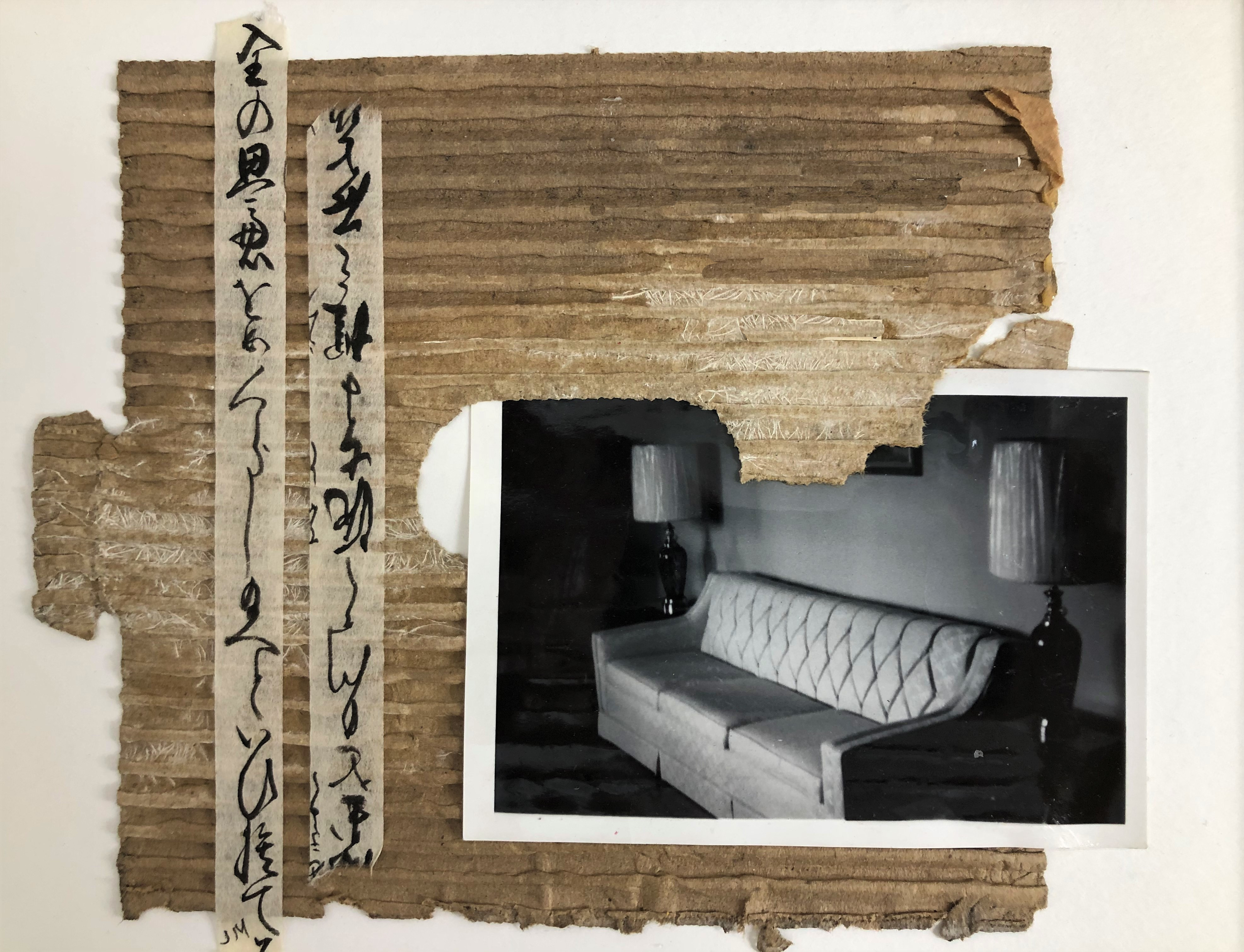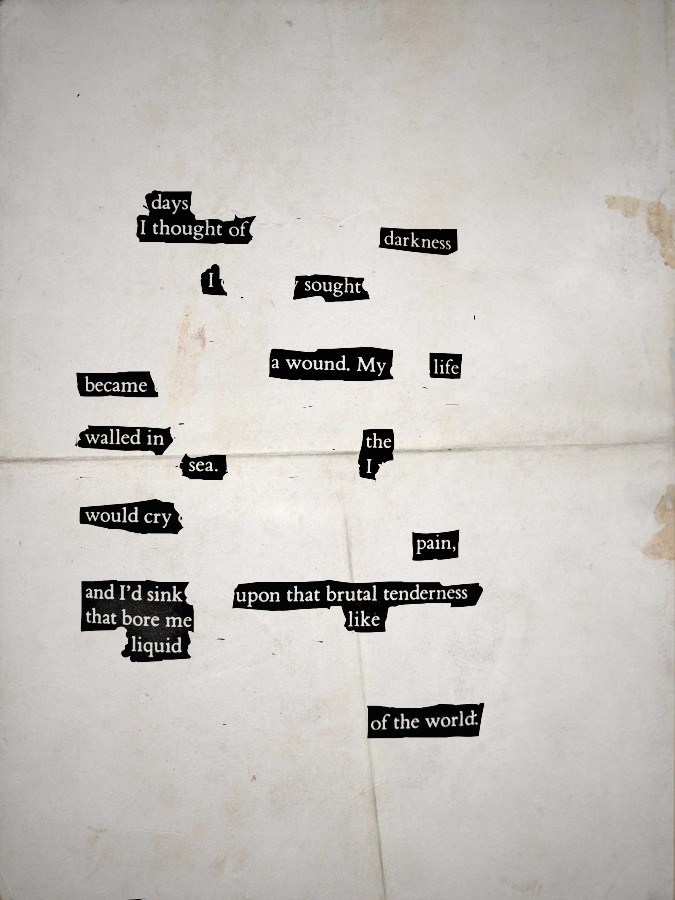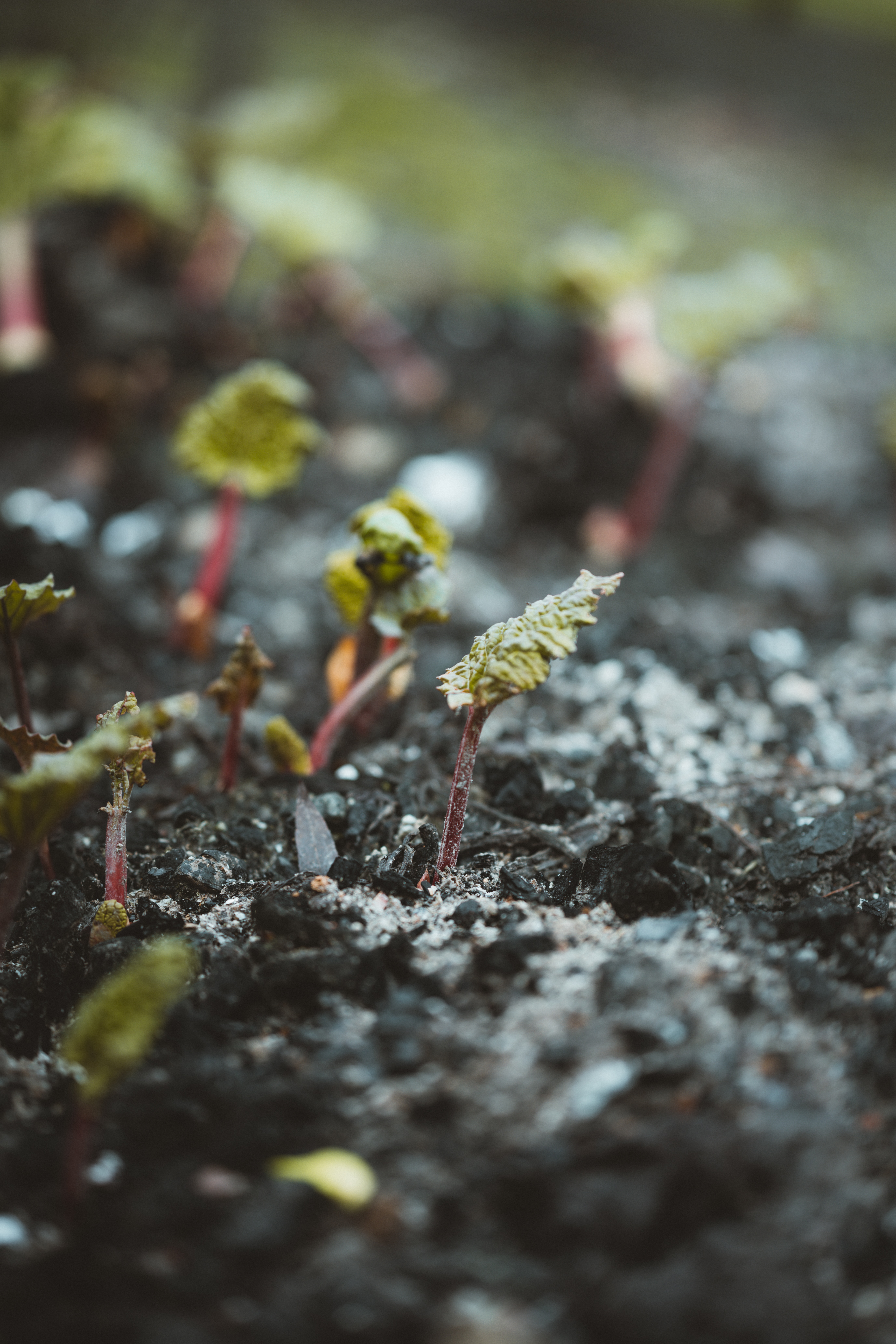Thank you for reading!
Stay safe.

return to beginning of issue 21
Darkness is really coming on us now.
It is an unhealthy and unnatural
sort of dark. The brilliant light of the South
Seas, the blues and greens of the sun, are now
all as though washed down by dirty color.
Darkness is now really upon us. We
see the diamond ring, that famous circle
around the moon. We see the sun-streamers
breaking through the mountains of the moon. We
see for the first time the magnificence
of the corona extending in great
streamers away. Darkness is on us now.
It is an unnatural sort of light.
Darkness is really coming on us now.
Source & Method
Jerry Dennis writes nonfiction books for a living (The Living Great Lakes, The Windward Shore, etc.) and enjoys composing brief works that sometimes appear in PANK, Michigan Quarterly Review, Right Hand Pointing, and elsewhere. (www.jerrydennis.net)
Photo by Cherry Laithang
You start this poem by the want of it,
from the darkness of its long and stony sleep,
scared of the circles time takes.
You reach for echoes from the mouth;
some repetitions are made to be music.
Source & Method
Cindy Bousquet Harris is a poet, a licensed marriage and family therapist, and an editor at Spirit Fire Review. Her poems can be found in Nostos Literary Journal, Pomona Valley Review, Inlandia: A Literary Journey, and several anthologies.
Photo by Lauren McConachie
wild garden,
swing the
long-stemmed
thunder,
light
the
snow
and other summers,
break
what never asks
my
heart
to
come alive.
Source & Method
Cindy Bousquet Harris is a poet, a licensed marriage and family therapist, and an editor at Spirit Fire Review. Her poems can be found in Nostos Literary Journal, Pomona Valley Review, Inlandia: A Literary Journey, and several anthologies.
Photo by Trang Ta
a thing dreamed
quiet, modest
troubling
laments
would spare
only birds
build a wild
little death
everywhere
Source & Method
an erasure of “A Dream of Trees” by Mary Oliver
F.J. Bergmann has never been to Niagara Falls, but is still under the impression that she would enjoy a honeymoon someday, preferably a cruise to an array of exoplanets.
Photo by Cristina Gottardi
Booksmart,
that’s me.
Come for the small plates,
Stay for the chatter.
Whereas she—
silk reeling energy—
bites the hand. Would rather
wail than whisper.
Mine now.
Scribe tied. Can’t
escape, can only slam,
clash, ding each other’s
armor. All that warm
poison. Encaustic.
But no, no. I’m never sorry
we adopted.
Source & Method
A cut up from half a dozen newspapers and magazines, including a community paper, movie and restaurant reviews in the Globe and Mail, and back issues of the New Yorker. No new words added.
Susan Olding is the author of Pathologies: A Life in Essays. Her poetry and prose have appeared journals and anthologies including Desperately Seeking Susans and In Fine Form.
Photo by Walter Lee Olivares de la Cruz
The yips of coyotes echo
through the canyons
of our excellent architects.
Rats scrabble in the alleys.
This is not the first time.
It has all already happened.
The old answers will not answer.
Answer? Answer.
Answer!
Boots thud through empty
corridors. Strings
snap, a sharp note scrapes the air.
Elevators dangle
from their severed cables.
The old answers equal terror.
Add terror to terror, twice terror. Multiply
by ten. Subtract six sunny afternoons but don’t
delude yourselves—the next wind
will still stink of kerosene.
Grass catches faster when it’s hot.
A sad sharp note shatters glass.
Broken glass feeds the heat.
Are we afraid of the fire
or of ourselves?
Water is a portable soul.
You can march a boot to water
but you can’t make it
drink deep, deep into her peerless eye.
Those tears don’t signify.
Just a speck of glass from the recent blast.
Happiness is limited
not incorporated. Our excellent architects
have not mastered its plan.
Source & Method
Translitic from exercise 176 in The First Latin Book, William Coe Collar and Moses Grant Daniell. Boston: Ginn & Company, 1897, p. 69.
Susan Olding is the author of Pathologies: A Life in Essays. Her poetry and prose have appeared journals and anthologies including Desperately Seeking Susans and In Fine Form.
Photo by Velizar Ivanov
Salem Witch Trials Tercentenary Memorial
Slabs of worn stone, inscribed—
For my life now lies in your hands
Gray slabs that do not touch
On my dying day, I am no witch
Where their words slide under
If I would confess I should save my life
Mid-sentence
I do plead not guilty
Before the mute tombstones
God knows I am innocent
Where the tourists mill
I am wholly innocent of such wickedness
And pose for selfies
Oh Lord help me—
Source & Method
Lines in italics are taken from the Salem Witch Trials Tercentenary Memorial, Salem, MA.
https://historyofmassachusetts.org/salem-witch-trials-memorial/
“The memorial consists of 20 granite benches surrounded by a low stone wall. The stone slabs in the entryway to the memorial are inscribed with the victim’s protests, which were taken directly from the court records. The Salem Witch Trials Tercentenary Memorial attempts to give form to concepts of injustice…The designers approached the idea of injustice through four words: Silence, Deafness, Persecution and Memory. To represent silence, they graded and organized the site to emphasize the surrounding tombstones as mute watchers looking into the memorial. For deafness, they inscribed the historical protests of innocence on the entry threshold and had them slide under the stone wall in mid-sentence. For persecution, they planted black locust trees, from which the accused believed to have been hanged. For memory, they enscribed the names, dates, and manners of death on stone slabs, which were then cantilevered from the stone wall as benches.”
Kennedy, Alicia and Sheri Olsen, Theresa Morrow. The Best of Cutler Anderson Architects. Rockport, 2008.
Cindy Veach is the author of Gloved Against Blood (CavanKerry Press), named a finalist for the Paterson Poetry Prize and a ‘Must Read’ by The Massachusetts Center for the Book. Her poems have appeared in the Academy of American Poets Poem-a-Day, AGNI, Prairie Schooner, Michigan Quarterly Review, Diode and elsewhere.
Photo by Johnny Cohen

Source & Method
Temidayo Jacob is a Sociologist who writes from the North Central part of Nigeria. He is passionate about espousing the conflict between the individual and the society, especially through identity, sexuality and conformity. He is the author of Beauty Of Ashes. He is a curator at Artmosterrific. Temidayo’s works have appeared and are forthcoming on Rattle, Outcast Magazine, Lucent Dreaming, Kalahari Review, Peeking Cat Poetry, Sub-Saharan magazine, Page Adventure, and others. Twitter @BoyUntouched.
I.
Free, free, free.
I would hate to cut these up, if someone could use these.
If the ad is still up,
they are still here.
One hedge bush,
and the other has yellow flowers in the spring.
II.
Water lilies are taking over our pond.
Help thin them out!
If you respond, please send your number.
I’ll call you.
Free water lilies.
III.
Unknown plant growing from tennis ball left in rain.
Come buy it and keep it growing.
Maybe you’ll have a tree one day,
or a rose,
you never know.
Source & Method
These found texts come from Craigslist (1 and 2) and Facebook marketplace (3) from June 2014 through December 2019. I do not add text to the ads, but I do manipulate the text in terms of punctuation and order.
Sarah Plummer is a doctoral student at Virginia Tech studying circus, politics, and social order. She is an Appalachian who, in a former life, worked as a journalist in southern West Virginia.
Photo by Andisheh A
I am relearning this garden of my own making
I vow to be different.
As I move away from waiting rooms and call lights,
I enter a realm of quietness.
The walls are plastered with black trash bags.
I dunno why I’m here, man, I got shit to do.
Let me try this again
I should be worshipped and feared like a god.
Six people are snorting what looks like blow
They are almost like cats in a way
“No! My pie!” Sue cries from the kitchen.
These goddamn antics weary me,
Why do you really need a five-foot kazoo?
Let’s just make a drink with the juice and Malibu
I basically feel like a water balloon.
Tom smells like an apple tree
I have to sit on him (gently)
People jump up and down on their cars
throwing toilet paper
No traditional furniture in sight
The clocks stopped working about five days ago
“So tell me straight, are you sure you’ll be fine in America?”
Source & Method
Poetry, short stories, and creative nonfiction of my writing students at De Anza College, Fall 2019. I wanted to include a line from each student’s work, so I chose ones that fit into a sort of narrative about my own teaching and life in the current moment.
Lita Kurth is a teacher and nominee for several Best of the Net and Pushcart Prizes in multiple genres, Lita Kurth also writes novels. As a current project, she sends lesson plans and feedback to a group of incarcerated poets.
How will I live with the new, glorified body at this distance,
engrossed in the weekly drama of post-traumatic stress and growth still thriving today?
In one episode, the cook freaks out
and begins a scathing critique of the Lazarus phenomenon.
Mouth-to-mouth breathing was heard all around the common room.
The candle hollers, the patient dies,
accused of stealing the rhythm of your chest.
It was a reversal of how the heart came running down the pitch,
a moment at which an individual questions futility.
It was more about status than appetite.
His wife shares her own love story:
a monkey tried to mimic the clinically dead state to its friend,
which had reportedly been electrocuted.
Unfortunately, the procedure was not effective.
Source & Method
I put the title into Google with various search terms including “Britney Spears”, “false”, “fake”, “artificial”, “death”, “cook”, “body”. “PTSD”, “monkey”, “effective”, and “college”. Text was lifted from the first 2 search result pages and rearranged to form the poems.
Ben Drum is a physician-writer in Salt Lake City, UT. He received his BA in Creative Writing as well as his MD at the University of Washington.
Photo by Robina Weermeijer

Nothing exists until its moment of absence.
Then, from the highest tower of absence
the passion of events––
the rising moon of eyelashes sparkles
and it’s in words the morning comes flowing,
the sun arriving on a head of steam.
Everything opens up, endless petals, the smell of wild medicine,
the tissue that death was binding around you,
molluscs and verses, slugs and a curl,
the plucked angel’s wing,
powerful soulquakes.
Everything was shooting up from
an undulating, twining root
wriggling out of dense red darkness,
struggling with its mute lament.
Waiting buds in suspended animation
come, breathe close with me.
Alone, you listen to the dark dissolving,
heavy with the rain of all eyes.
Light is close sometimes,
besieged by obstacles
in unorganized sentence fragments
until the wind is the only word
hewn from darkness, forged from light.
What boils in me darkly
is heard no more. Now, silence––
the silence is cold enough to split a rock.
That singular voice has stopped. Silence is complete,
I breathe happiness instead of air.
Source & Method
Jacquelyn Shah, M.A., M.F.A., Ph.D.–English literature, creative writing–poetry. Has published full-length poetry book: What to Do with Red (2018). Specializing, at present, in centos.
Photo by Annie Spratt
Summer had been so hot the things we touched burned our hands.
The sky wasn’t black or blue but the dying green of night.
Stars had closed their eyes or sheathed their knives.
I used to think pain was meaningful. I no longer
think pain is meaningful.
The flawed moon acts on the truth, and makes
an autumn of tentative silences.
Sort of a solution to awkward goodbyes.
I held a penny on my
tongue. The taste shocked me,
its brown-gold sweet. I suppose
there are grips from which
even angels cannot fly.
Did you think I would not change?
Source & Method
Lynn Finger holds a B.A. in Humanities. One of her poems won second place this year in the college publication, Sandscript, and third place in the Regional Division. Lynn is in a group that mentors writers in prison.
Photo by Siora Photography
My son saw a medium-sized pig
run across Hill Road—
///////in case anyone is missing one.
There are two pigs that live
on the end of that road.
What was her coloring? Tiffany,
was Arya on the loose?
The Cross Highway goats are standing
on the roof of a car. A goat share ride
on Goats Highway. Pettigoat Junction— a town
///////where nature’s critters roam free.
Hatched cicada chillin’ poolside.
Anyone else have any sightings?
Pug! (looks like)
There is a pug (dark brown,
or black) with collar at field
near Black Rock Turnpike. Will not
come to us—do not want
it to run onto 58!!!! Anyone???
///////Any fresh eggs nearby?
Two dogs running on Seventy Acre, they ran
when I opened the car door.
Racoon? More than likely.
Yes, because of the thumb.
I agree. Looks rather large.
Better lock your windows and doors.
Around 4 PM today a German Shepherd
trotted through our yard.
Anyone missing a dog?
I saw the Monarch caterpillar
but he is gone now. What should
I look for next?
Can anyone tell me if our ducks
are both females? They look
like it to me, but who knows?
There’s been some questionable activity.
Someone is dumping Koi
in Huntington Park. I saw
two giants swimming today
while I was fishing.
Hawks at the community garden.
Anyone know the rules for a cow
on property? Acreage needed?
Spectacular sunset over the barn tonight.
Egg table is out at Old Redding Road!
Missing cat. Answers to Merlin.
All black. Reward for his safe return.
Long Ridge railroad crossing is open—
North and South Redding are reunited!
We should have a parade!
Source & Method
This poem is a collage made of text found in the Redding CT 411 community page on Facebook. I moved to Redding a few years ago and was struck immediately by the difference in tone, and consternations, on the Redding community page from the page of the small industrial city where we had previously lived. I love this small rural community and all of its different voices; I hope that comes through in this collage.
Suzanne Frischkorn is the author of Lit Windowpane (2008), Girl on a Bridge, (2010) and five chapbooks. Her poems have appeared in numerous journals and anthologies including Copper Nickel, Diode, Ecotone, Indiana Review, Puerto del Sol, and Verse Daily.
Photo by Monica Bourgeau